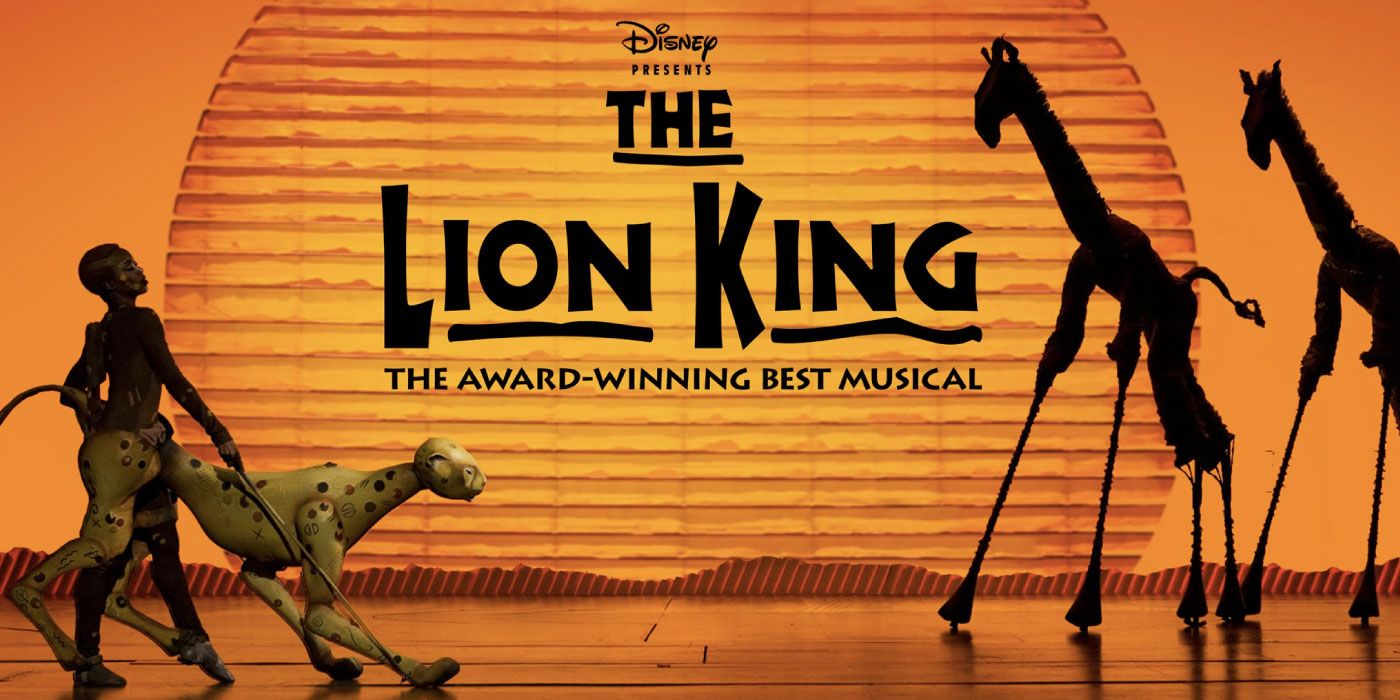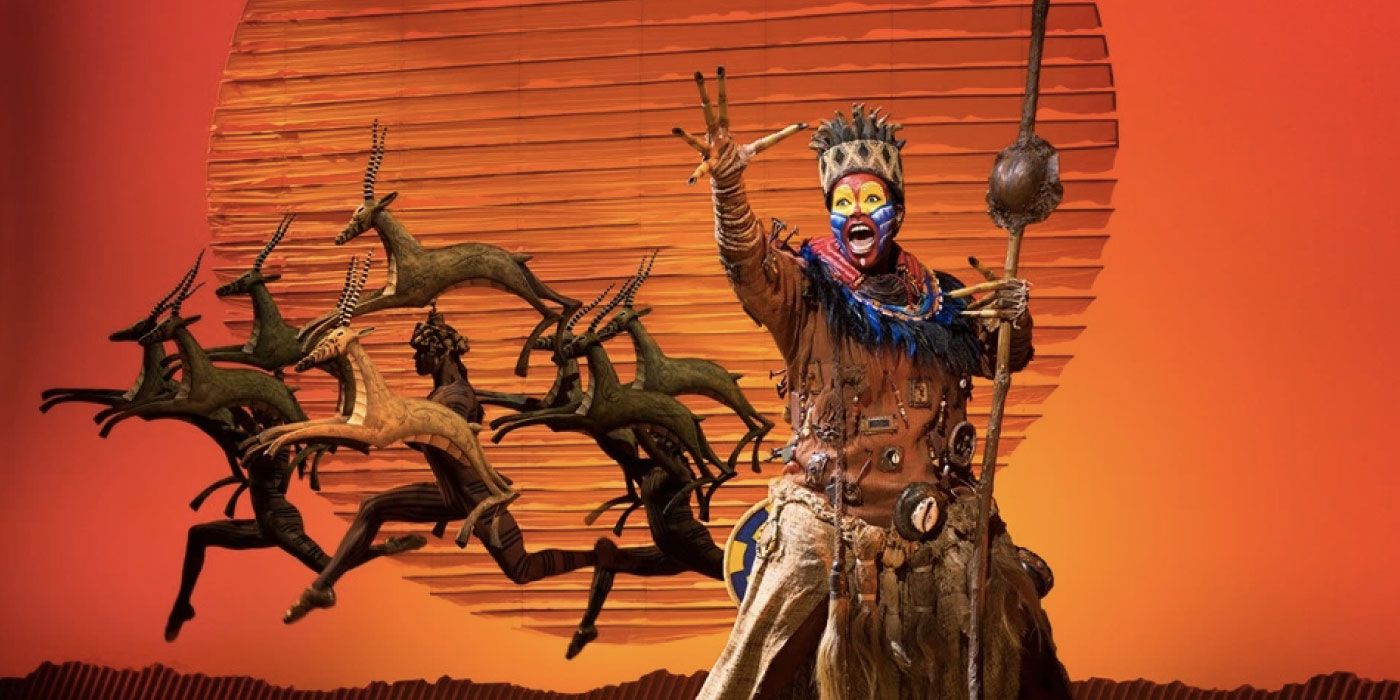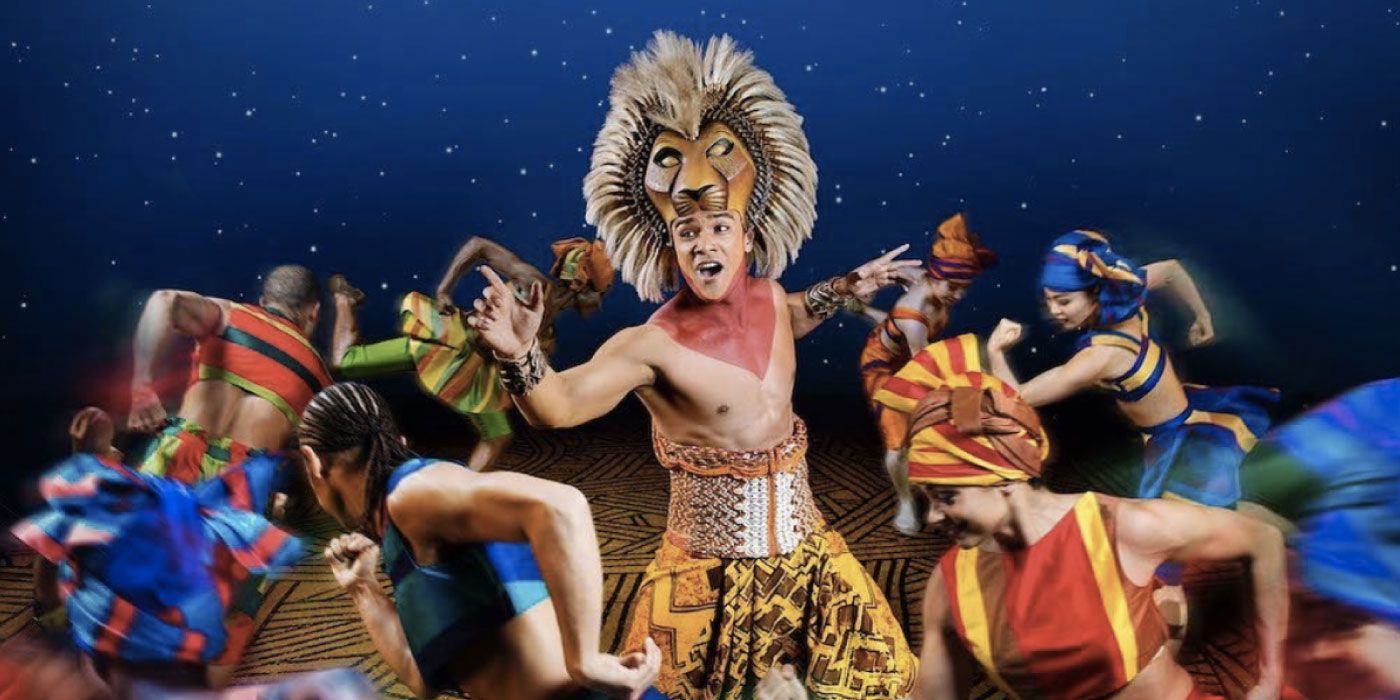The success of Disney's 1994 The Lion King led to the creation of a Broadway musical that debuted three years later in 1997. Directed by Julie Taymor, The Lion King musical went on to become the highest-grossing Broadway show in history. Making a stage adaptation of Disney's hit animated film should have been an impossible task for Disney Theatrical Productions but the company somehow managed to accomplish this feat. The musical is an inventive experience, which is why many consider The Lion King musical to be the definitive version of the story.
The Lion King largely takes inspiration from Shakespeare's Hamlet though it shares a few similarities with the Epic of Sundiata, an African epic poem detailing the founder of the Mali Empire. Similarly, the film is about a displaced prince who is visited by the ghost of his father and subsequently retakes the throne from his murderous uncle. Though Hamlet is ultimately a tragedy, The Lion King is a celebration of life and how the deceased will continue to live on in some form. The Lion King musical is deeply rooted in music, languages, traditional dance and the oral storytelling tradition of Africa. The musical is able to take these elements and integrate them in a stylized way that honors the multiple cultures it's pulling from.
When Julie Taymor was tasked with directing a stage adaptation of The Lion King, she hadn't seen the film and she wondered how she'd translate its epic stampede scene onto the stage. Taymor was an experimental director whose background was in Shakespeare and puppeteering. The challenge of depicting a stampede on a stage was an exciting one for her and she was told by the then-CEO of the Walt Disney Company, Michael Eisner, to follow her instincts. He said, "Let’s go with your first idea. The bigger the risk, the bigger the payoff." Taymor must have taken this to heart, as the musical is full of creative risks and ideas you couldn't find in any other productions at the time.
Taymor took The Lion King and made it into a theatrical spectacle. She showed the artistry of the production and the beauty the story being told. The cast of The Lion King was largely Black, consisting of South Africans with little to no formal training in acting or singing. At the time this was unprecedented as Black people weren't overly represented in mainstream theater. To depict the animals, Taymor had the actors wear costumes and full-sized puppets dubbed "hum-animals" -- a combination of traditional puppets and human actors. The songs featured throughout the musical were sung in six indigenous African languages including Swahili, Zulu and Congolese. All of these elements allowed for a feeling of creative freedom to flow throughout the stage. This why the musical is so celebrated.
Aside from the technical aspects of production, the changes Taymor made to the narrative strengthened aspects that were missing from the original film. Simba's journey of self-discovery and his ultimate return back to his home is more impactful in the stage adaptation as he struggles with his fears in the aftermath of Mufasa's death. The added scene in the musical where Timon almost drowns and Simba is momentarily paralyzed with fear highlights how helpless he feels since the incident. The moment where Simba regains his confidence after reuniting with his father's spirit also feels more heartfelt in this version.
In the musical, Taymor changed the mandrill Rafiki's gender to female. Besides Nala and Queen Sarabi, the film lacks other prominent female characters. Rafiki serves as the narrator and a "griot" in the stage adaptation. Griots were storytellers in African society and many of them were women. Nala's role in the musical is also expanded as she rejects Scar's lecherous demand to be his queen and leaves the Pride Lands to find help against the famine. Nala is given a powerful song called "Shadowland" that depicts her tribulations with leaving home and her determination to one day return to fix what's wrong. Ultimately, Nala's character is presented as stronger than she is in the original film because she is given more autonomy.
The Lion King musical is considered the best version of the story by many due to its creative risks and its positive changes to the narrative. The musical is remembered because the medium of theater allows the audience to wholeheartedly engage with the material.



